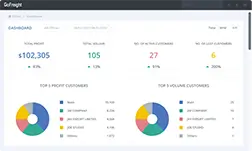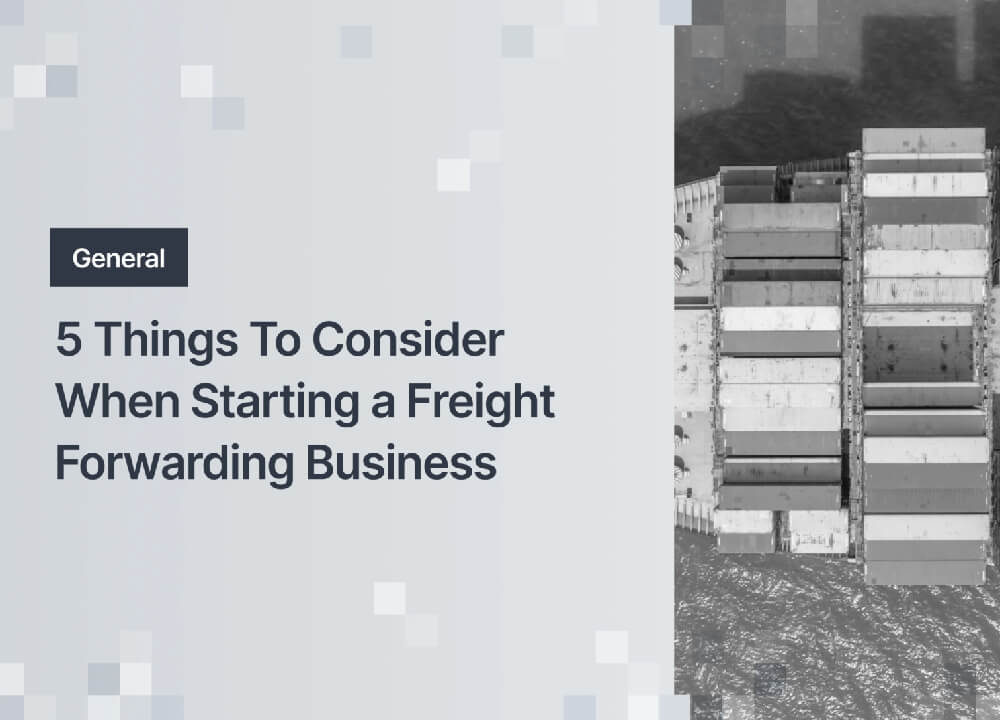A freight forwarder provides a service to its customers who wish to have their shipments move from one place to another. The goods that are shipped can vary from a set of tables to huge machinery. The mode of transport includes rail, road, sea or air. Forwarders organize and arrange the transport so that the freight moved will arrive at its destination at the right time while in good conditions. Freight forwarders research freight quotes, provide information on shipment routes, book cargo spaces, prepare and provide documents, handle regulatory requirements and arrange storage if needed.
Below we have listed the main points to consider when starting a freight company
What formal training do you need for starting a freight forwarding business?
For the most basic freight forwarding, no formal training or qualifications are required for starting a freight forwarding business. However, it is desirable and recommended to have a general understanding of the industry. Furthermore, if your business is more complex, involving the carriage of dangerous materials, forwarding freight overseas, or providing any kind of insurance, you or one of your employees may be required to hold qualification under IATA regulations.
If you are interested, we have compiled a list of the top 10 freight forwarding classes that can get you readied for starting a freight forwarding business.
Are you suited for starting a freight forwarding business?
The business of freight forwarding is operated in an office setting, meaning that experience in clerical work would be essential. Also, communication skills and the ability to multitask and handle different projects at the same time would be useful.
If you are starting an international freight forwarding business, you may need to be aware that it is unlikely that you will work from 9 to 5 all the time. There will be times when you will need to make contact with people in different time zones and help your customers meet tight delivery deadlines.
In addition, a successful freight forwarder has an extensive range of abilities and skills that can be summed up as important knowledge of the freight forwarding industry. You will be entering a complex market filled with a magnitude of different practices and regulations. In this case, some of your knowledge will be theoretical such as international trade, economics, law, and finance.
On the other hand, some of the knowledge will also consist of practical experience gained from performing freight forwarding operations. As you become familiar with the overseas market, shipping methods, required documentation, and customs procedures, you can operate freight forwarding business more efficiently and become more reliable in the eyes of your clients.
Although English is the common language in international trade, it is still definitely a plus to have the ability to speak other languages. Linguistic ability can allow you to get into personal touch when dealing with customs departments, foreign customers, and shippers overseas. Even though it is less likely to travel in times of pandemic.
Who are your potential customers?
Your customers are mainly going to be importers, exporters, and possibly other freight forwarders. You may find your business dealing with freight carriers and haulers operating only between regions and towns in the U.S. However, there are times when they will need you to send goods overseas. Furthermore, you may be contacted by foreign companies that are looking for freight forwarders to arrange their import shipments from abroad.
In the meantime, many freight forwarding companies win long-term contracts with manufacturers to oversee the connection of moving shipments between ports and cater for manufacturers needing a freight consolidation service.
Who will you be competing against?
Your main source of the competition will clearly be other freight forwarders ranging from small companies to large multinationals. Their competitive threat to your freight forwarding business may depend on the customer sector that you decide to focus on.
A freight forwarder or small companies may specialize in some areas of the U.S. or specific industries. Oftentimes, they have remained in these comfortable niches for a long term. You may be able to better compete with these companies by offering services to a greater range of customers or industries and trying to match the clients’ increasingly complex needs.
Moreover, you may be thinking of lowering the pricing of your freight forwarding service as a way to stay competitive in the industry. It can be a strategy for large companies to drive small companies out of business, but this is definitely not a realistic and sustainable strategy if you have just started your own freight forwarding business.
As a result, not the price, but it is the quality of your service that determines the long-term success of your business. For example, inaccurate container tracking may be bothering a lot of customers. Lowering pricing may not be the ultimate solution, but utilizing a tracking system such as GoFreight that provides real-time tracking is. In order to increase customer satisfaction and retention rate, you have to tackle your customer’s pain points and problems. As your business grows, your bigger customers are definitely going to demand quality and functions over lower prices.
How to gain a competitive advantage?
The unstoppable growth of technology has driven countless industries to invest heavily in digitalization. This digitalization trend has also been starting in the traditional industry of freight forwarding. In order to gain a competitive advantage, or even not be eliminated by your competitors, it is very important to utilize technology in your business and daily operations. You need a system that can help streamline workflow, boost productivity, eliminate human errors, and reduce costs.
Implementing new technology into your freight forwarding business is actually not as overwhelming as it seems. With the right freight forwarding software provider, that will guide you step-by-step, you can seamlessly transition into the next phase of your business and grow exponentially after the implementation of industry-leading freight forwarding software such as GoFreight. Get a personalized free demo now to learn how GoFreight can help your business tremendously.







